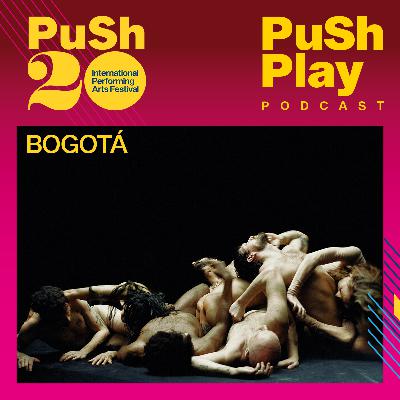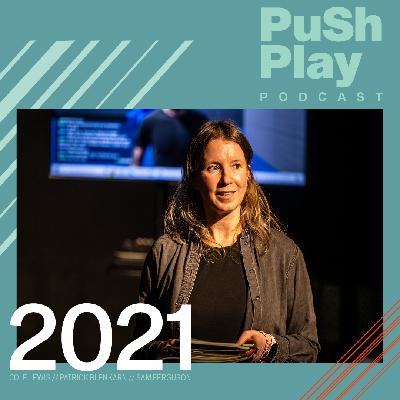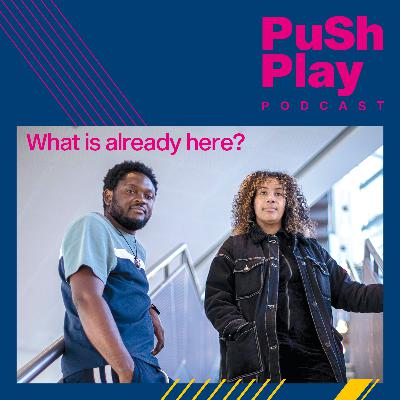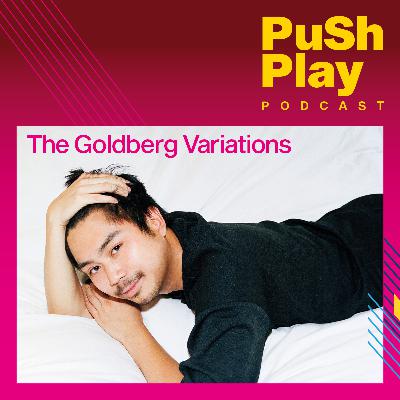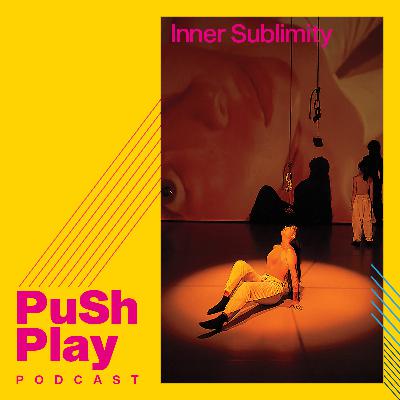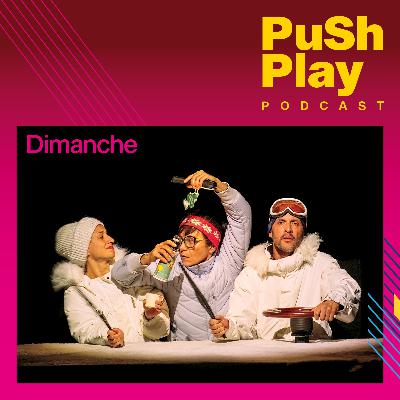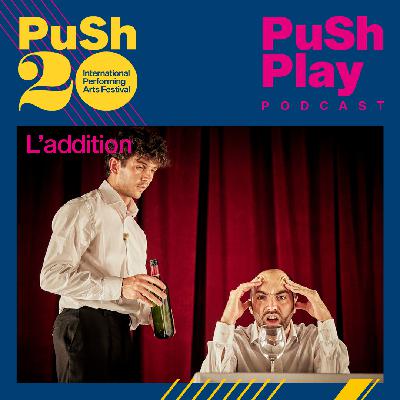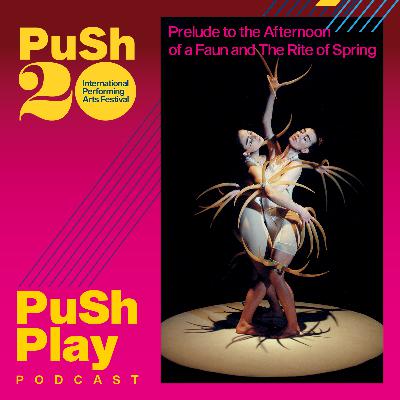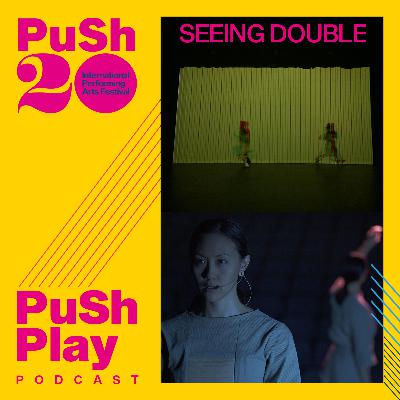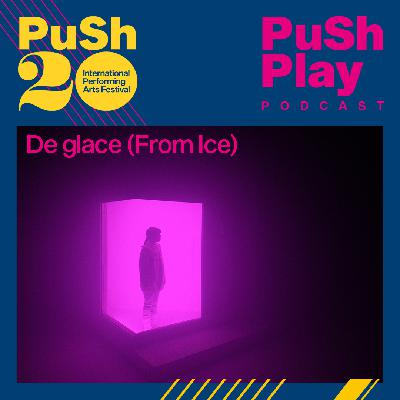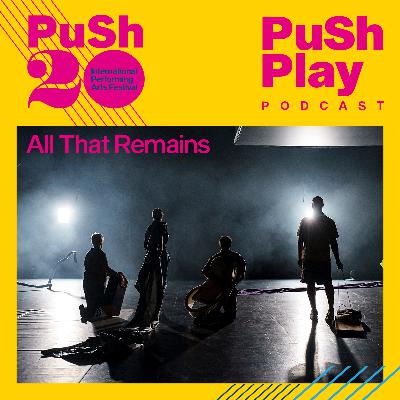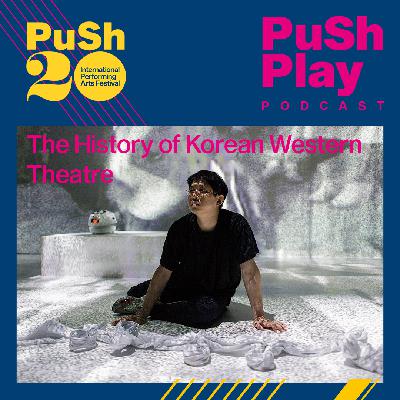Ep. 46 - Building from the Back Door (BOGOTÁ)
Description
Gabrielle Martin chats with Andrea Peña, whose work, BOGOTÁ, will be presented at the 20th PuSh International Performing Arts Festival. You can catch her show on January 31 and February 1 at the Vancouver Playhouse, in association with New Works.
Show Notes
Gabrielle and Andrea discuss:
-
What does the choreographic practice require?
-
What is the future of choreography from today forward?
-
What does it mean to democratize the choreographic process and how is that different from the norm?
-
What are the sociopolitical questions in the work?
-
What does it mean to make a work about the anthropocene?
-
What do you mean by the container-state?
-
What does the word "queer" mean to you, your practice, and Bogotá?
-
What does it mean to queer the baroque, especially in the body?
-
How do you capture both past and future notions of the industrial and industrial society?
-
How does it feel to return to Vancouver with this work?
About Andrea Peña and Artists
Andrea Peña and Artists (AP&A) a millennial company that believes in the possibilities of crafting new imaginaries in choreographic and performing arts. Returning, individually and collectively, to our essence as humans. As an upcoming generation of artists, we feel we have the responsibility to reflect on the values that shape us, our decisions, reflections, work, to focus beyond our actions and return to our essence.
AP&A merges the universes of choreography and design; a multidisciplinary company that creates performative universes that challenge notions of a sensible humanity through political yet abstract creations which transform conceptual research into theatrical larger ensemble installations. The foundations of Peña's work is to create rich choreographic systems that reveal the point of view of the performers. Negotiations can take the form of frames, concepts, athletic constraints, to reveal the individual and collective point of view, as much as the choreographers.
As a bi-cultural artist, our works bring forward interwoven Latin American philosophies and inclusive values to carve space for the futuring of finding unity through our complexity and diversity, thus perpetually encouraging collisions between heterogeneous fields, disciplines and individuals. We aim to democratize the choreographic process as public sources for experimentation and collective knowledge creation.
Land Acknowledgement
This conversation was recorded on the unceded, stolen and ancestral territories of the Coast Salish Peoples: the xʷməθkʷəy̓əm (Musqueam), Skwxwú7mesh (Squamish) and Səl̓ílwətaɬ (Tsleil-Waututh), colonially known as Vancouver.
Andrea joins the conversation from Pittsburgh, ancestral lands of the Seneca in Pittsburgh and Sharpsburg, Adena culture, Hopewell culture, and Monongahela peoples who were later joined by refugees of other tribes (including the Delaware, Shawnee, Mingo, and Haudenosaunee tribes, who were all forced off their original land and displaced by European colonists.
It is our duty to establish right relations with the people on whose territories we live and work, and with the land itself.
Show Transcript
Hello and welcome to Push Play, a Push Festival podcast featuring conversations with artists who are pushing boundaries and playing with form. I'm Gabriel Martin, director of programming at the Push Festival, and today's episode highlights grotesque liberation, death and resurrection, bodies of labor, and more.
I'm speaking with Andrea Pena, choreographer of Bogota, which is being presented at the Push Festival January 31st and February 1st, 2025. Visceral and transgressive Bogota constructs a brutalist landscape from choreography inspired by Colombia's political and spiritual heritage.
This raw physical experience of mutation and resurrection explores embodied origins, inherited mythologies and mortality, honing the rebellion of deviant bodies and paying tribute to resilience within the post-colonial era.
Interested in the depth of human individuality that breaches from a personal disposition as a bi-cultural artist, Pena's approach is known for its difficult choreography as a highly intricate, vulnerable, and somatic raw physicality that engages in deep encounters between the physical body and a highly conceptual research approach.
With a background in industrial design, her work borrows from visual art practices and spatial qualities of creative making, questioning the body as a material existing in relationship to space and time.
Here is my conversation with Andrea. There is a JGB beside me, but I am actually on indigenous territories. I'm on the unceded traditional and ancestral territory of the Coast Salish peoples, so the Musqueam, Squamish, and Tsleil-Waututh.
I am a settler, and I've been, you know, a part of the being a settler is a responsibility to learning and engaging with learning about indigeneity and engaging with contemporary indigenous. issues affecting Indigenous people today.
And one way that I've been doing that is through the Yellowhead Institute, which you'll hear me plug in quite a bit. And so I'm working through their red paper land back course, which is really encouraging settler folks to reflect on what it means to be living in accordance with Indigenous law and to enact land back by supporting front lines.
And one thing that really stood out in the lesson, one of the recent lessons from this course is they just put it so clearly that if we really want land back but do nothing about it, we are upholding the liberal fantasy, a belief that you can change the world by simply feeling a certain way.
And I just think that's really to the point. Andrea, where are you joining the conversation from today? Hello. So I'm actually currently in Pittsburgh. So I'm a bit in transit, stepping out of Montreal for a few days.
I'm here on the ancestral lands of the people of Adena, Hopewell, Morengohala, and Seneca people here in Pittsburgh, Pennsylvania, U.S. Thank you for that. And usually you're in Giorgia, Montreal. Giorgia, Giorgia, Giorgia, Montreal.
And so you describe AP&A or Andrea Pena and artists as a millennial company. What does that infer for you? Yeah, I think for me it was really important to situate, you know, AP&A in terms of the fact that it is millennial.
I mean, you know, I'm in my 30s. A lot of the artists that we work with are also within the same age range. And I think

